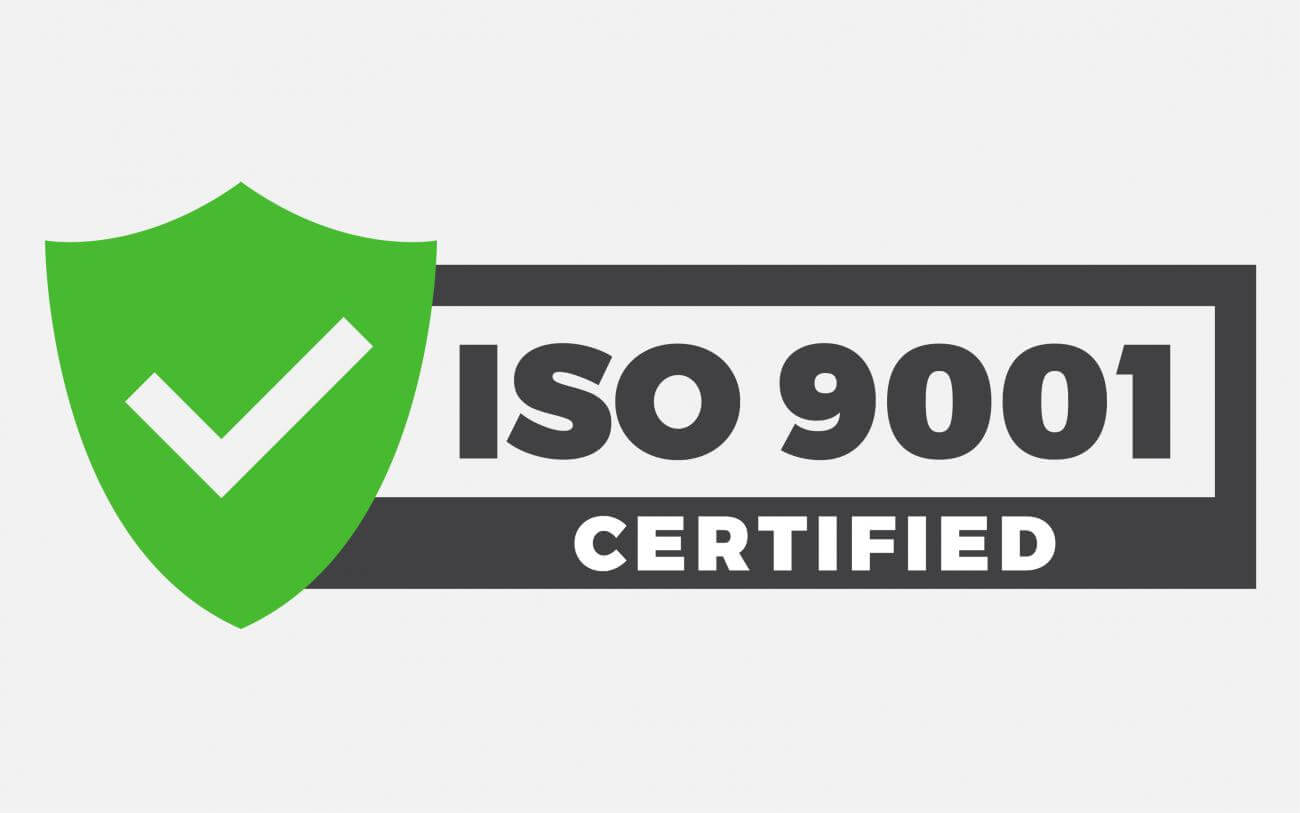
Welcome

ISO Pros in Laredo, Texas (TX) is an organization dedicated to helping small and medium-sized enterprises grow their business by following the best standards in ISO. From initial evaluation to certification and beyond we automate the whole process. We think expectations complement the day-to-day operations of an organization. Our professional auditors also ensure that the systems and practices of our companies are fully defined and prepared for you.
We are providing as much or as little help as a client might require. Our team also provides consulting and advisory programs, in addition to auditing, to help our clients optimize the market advantages of compliance, such as increased client loyalty and a company-wide culture of doing things correctly the first time.
ISO Pros in Laredo, Texas (TX) has a core business principle that is meant to eliminate the tension that can sometimes be associated with ISO standards implementation and management. Our emphasis is on consumer success and our loyalty to our customers is a joy to us. We were rated on our customer base as great or above. Our customers have a high degree of satisfaction, so we expect to continue to improve our service year after year. For comments from our clients please check our Google reviews.
ISO 45001
This standard reflects the ongoing commitment of companies to provide a safe atmosphere for your workers and customers to operate in. Management systems in ISO 45001 guarantee the company efficiently meets the strict environmental standard standards of the products you sell.
ISO 45001 is the first uniform occupational safety and health standard in the world, replacing OHSAS 18001 which was formerly set the OH&S pattern. New aspects of the ISO 45001 specification include a clearer connection to health and safety and corporate governance, a deeper focus on the role of company leadership and management committees, and expanded emphasis on workplace involvement and interaction. The latest standard complies with the idea of good efficiency, in accordance with ISO 14001:2015 and ISO 9001:2015.
Instead of integrating various frameworks together, an Integrated Management System based on ISO 45001 integrates all of the components into one that makes for simpler control and operations. Incorporating and sustaining control systems for a development, finance, and health & safety means integrating and performing similar procedures together without repetition. The IMS structures operate together, with each task being combined with one goal: optimizing the efficiency of your whole organization.
Through productivity and cost-efficiency while reducing the damage caused by numerous external audits, the IMS should deliver advantages for the company. This further represents your commitment to enhancing productivity, employee satisfaction, and increasing results.
ISO 9001

ISO 9001 is an international standard that sets out the quality management system (QMS) requirements. Organizations utilize the standard to show the capacity to supply the market and regulatory requirements for quality products and services. It is the most common standard in the ISO 9000 series and the only standard in the series which allows certification by an organization.
ISO 9001 works for all organizations, regardless of their scale or industry. More than one million organizations from over 160 countries have applied for their quality control programs against the ISO 9001 standard requirements. Organizations of various forms and sizes should consider the usage of the ISO 9001 standard to help them:
- Organizing processes
- Boost the effectiveness of the system
- Continual improvement
Organizations using ISO 9001 are urged to upgrade to ISO 9001:2015 at the earliest moment. This involves not only organizations that are ISO 9001:2008 certified but also all organizations interested in training or other certification. For a new ISO 9001:2015 certification or to support organizations transition to the ISO 9001:2015 level, we provide credible, detailed, and value-added advisory, preparation, and qualification services.
We offer awareness training, implementation training, internal auditor training, lead auditor training to provide the employees with the required level of skills, knowledge, and more. We provide a wide range of advisory resources to help the client identify new requirements of ISO 9001:2015 and relate compliance parameters to current processes of ISO 9001 revisions. Launch your ISO 9001:2015 certification journey with us in the most effective way possible.
ISO 14001
The ISO 14001 specification calls for organizations to have an appropriate Environmental Management System ( EMS) which is focused on achieving their environmental and economic goals. The primary goal is to protect the environment; to avoid pollution, and to try to improve the total environmental performance as well as comply with regulations. ISO 14001 defines professional requirements for successful management of the organization’s environmental impact.
ISO 14001 requirements are generic and do not recommend unique measures, targets, or expectations for environmental effectiveness. These are specified internally by the organization, or by state, federal, or foreign laws and regulations that are developed externally. Although not prescriptive, ISO 14001 allows businesses to focus directly on managing the atmosphere, reducing pollution, and increasing productivity.
An EMS’ performance relies on the participation of all levels and departments within an organization, in particular top management.
What is recognized as an Eco-Management System (EMS)?
An environmental management program as specified in ISO 14001 is a part of the overall management structure of an entity relating to the creation, execution, accomplishment, analysis, and maintenance of the environmental policy of the organization.
An EMS is a management method aimed at enhancing environmental efficiency and offering a systematic means to handle environmental affairs within an entity. It provides organizations with a platform for cohesive and coordinated communication. The emphasis is on the immediate and long-term environmental impact of its products, systems, and processes.
Stakeholders are continuously centered on organizations trying to actively mitigate any impact their actions can have on staff, the economy, local economies, and the environment. After its first publication in 1996, ISO 14001 has rapidly become the most important international standard code. This has developed itself as a pillar of successful corporate management, along with handling efficiency, compliance, and health and safety concerns.
ISO 13485
Do you produce, service, install, or sell any medical devices? Are you able to show that the diagnostic system is secure and fulfills any of the applicable legislation? By adopting and certifying the quality control program in accordance with the ISO 13485 specification, you can show medical equipment purchasers and consumers that you meet all their criteria and national regulatory requirements. ISO 13485 is an international standard and is widely recognized throughout the world.
Certification procedure
A certification is a tool implemented by an independent organization to offer clear proof that a product, procedure, or service satisfies the standards of the certification standard. This is confirmed by the ISO 13485 mark, which is used as proof of conformity with the standards.
The certification process consists of phase 1 and phases 2 certification audit. The test can be associated with the registration of medical equipment in compliance with the Medical Device Directive in conjunction with the ISO 13485 standard. In this case, the technical file for medical devices and additional Medical Device Directive requirements are also assessed in the process.
Following the annual certificate granting, monitoring audits are performed on specific parts of the system to check the functioning of the system, and a re-evaluation audit is performed every three years. The ISO 13485 certificate remains valid as long as you are willing to show through routine audits that you are in reality meeting the ISO 13485 standards.
AS9100

AS9100 is the quality assurance standard, written for the Aerospace and Defense industries in particular. Several agencies, such as the Federal Aviation Administration (FAA), have previously found the ISO 9000 set of requirements to be insufficient in terms of maintaining consistency and protection in the “extremely risky” aerospace industry.
Why it is important
The aerospace industry has long recognized the crucial role that continuity plays for the most security-conscious industry in the world in the production of aircraft, space, and safety products. A customer’s confidence can be directly related to perceptions of the quality of the equipment and services that manufacturers are offering in this sector.
Who does it apply to?
The industry-wide AS9100 specification was developed in 1999 and is the specification to which thousands of suppliers in the aerospace industry are held accountable.
When you achieve the certification you will have:
- Increased product consistency, and prompt delivery
- More effective use of labor
- Improved loyalty of consumers in regard to manufacturing and suppliers
- Compliance with IAQG ‘s acceptance of 90% of the supply chain is certified
ISO Pros in Laredo, Texas (TX) can guide you through the certification phases. Call or contact us for more information. We are here, helping to hold Laredo, Texas (TX) producers on board, and ready for their success.
IATF 16949
Car suppliers are far too aware of how their design and production flaws, manufacturing errors, and variability contribute to rising costs, shortages, and safety issues, forcing car manufacturers to rely on consistency much more today. It has since been established widely as the standardized quality standard in the industry, harmonizing other vehicle standards including QS-9000, AVSQ, EAQF, and VDA 6.1.
Now it is undergoing a radical overhaul to ensure that it meets market requirements, resolving concerns and grievances regarding this new structure, recording criteria as well as other changes that are required for conforming with the latest standard.
IATF 16949 lays down the quality assurance standards for design/development, production, installation, and operation of automotive-related products in compliance with ISO 9001 for Automotive Quality Management Systems. Registration of IATF 16949 is compulsory for this sector. This has been established by the International Automotive Task Force (IATF) for coordinating car manufacturing schemes globally.
IATF 16949 benefits for registration will include:
- Improved production and product processes which can save a lot of costs.
- Potential for several of the world’s leading automobile manufacturers requiring approval from IATF 16949 to reach choice supplier status.
- It is easier to integrate into existing quality management processes, in accordance with ISO 9001.
ISO Pros in Laredo, Texas (TX) is about ensuring that you fulfill the client’s expectations and specifications. We deliver evaluations based on results and added value. The approach means that both the supply chain and the company can benefit from the audits.
CMMC
The US DoD aims to adopt the ‘Cybersecurity Maturity Model Certification‘ (CMMC) by 2020. The latest legislation comes when the Defense Department (DoD) attempts to push industries across the defense industrial base to help improve their protection programs and practices. The Department of Defense has since established new regulations that enforce a minimum level of secrecy as DIB businesses pass proprietary unclassified information inside its supply chain; where sensitive knowledge leaks raise threats to security nationally and cost the US economy $700 billion annually.
The CMMC intends to set up a popular cybersecurity program in this region, detailing the export protection requirements for defense and aerospace. The bill must work through a five-level system for the CMMC certification, certifying individuals with scores varying from ‘basic hygiene protection’ to ‘advanced.’
The five tiers include 171 activities (technical competencies) and 5 processes (manager and personnel procedures) covering 17 sectors. It means that should a company decide to achieve complete CMMC approval, it will adhere to every criteria and procedure within tier 1 to 5.
How does it affect current contracts?
NIST regulated the security capability of organizations that manage and exchange information regarding CUI. There will need to be a larger crossover period during which both CMMC as well as NIST SP 800-171 coexist due to the large number of contracts listed within NIST SP 800-171. Once these plans have been made the NIST SP 800-171, will be replaced ultimately by CMMC, and be discontinued.
While CMMC is for DIB organizations, the requirements set out in NIST SP 800-171 must be met, and the DoD will revoke the rule once CMMC is adopted in full. Thus, any company which accesses and also handles CUI which is always required to help self-assess the potential for cybersecurity – ensuring that satisfies any of the 110 NIST SP 800-171 safety requirements or has an action plan and priorities (POA&M).
CMMI

Capability Maturity Model ® Integration (CMMI) defines a process management testing and assessment curriculum and service operated by Carnegie Mellon University. The word “maturity” relates to the degree of formality and procedural refinement, from ad hoc processes to clearly specified measures, accompanied by controlled outcome indicators, and effective process optimization.
CMMI is a process management methodology that provides businesses with the basic elements of efficient operations. It’s designed to guide organizations’ progress across projects and organizations. CMMI helps to integrate historically specific corporate roles, define priorities and quality change strategies, provide feedback on best measures, and create a structure for assessing current procedures.
Based on the appraisal type, the organization may be given an ability level rating (1-5) or a skill level success score. Most organizations, while carrying out an evaluation, have value in assessing their performance. Usually, the tests are carried out on one or more of the following grounds:
- Determine how often the organization’s operations meet with CMMI criteria, and define areas for improvement;
- Asking potential customers and suppliers how much the company’s activities fit with CMMI ‘s best practices;
- To meet the contractual requirements of one or more of the companies.

